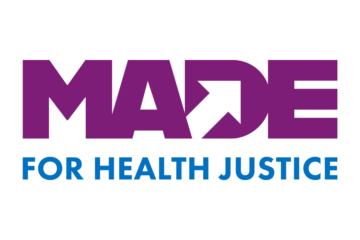 Safe streets. Good schools. Meaningful employment. These are all things we look for when deciding where we want to live. The environment in which we surround ourselves is a major factor that impacts the health and wellness of our friends, family, and community. At the de Beaumont Foundation, we often wonder: What if the places we live were built so that advancing health was the default choice? What might that look like?
Safe streets. Good schools. Meaningful employment. These are all things we look for when deciding where we want to live. The environment in which we surround ourselves is a major factor that impacts the health and wellness of our friends, family, and community. At the de Beaumont Foundation, we often wonder: What if the places we live were built so that advancing health was the default choice? What might that look like?
CityHealth, an initiative of the de Beaumont Foundation and Kaiser Permanente, provides navigational tools to help cities ensure that all their residents have the opportunity to achieve their best possible health. CityHealth’s nine-policy menu, designed to create strong and healthy communities, includes access to high-quality early education, affordable housing, safer alcohol sales, earned sick leave, safe streets, clear air, and access to safe and healthy food. In short, CityHealth is working to make sure that the places in which we live, work, play, and pray are primed for optimal health.
Want to find out how your city stacks up? Visit CityHealth.org.
“When creating CityHealth, we wanted to get beyond partisanship, and we wanted to get to those things that every city should have,” said Brian C. Castrucci, DrPH, president and CEO of the de Beaumont Foundation. “Policy changes the game — it’s sustainable, and it doesn’t cost more and more money over time like many programs do.”
This approach is working. Every year since 2017, CityHealth has assessed the strength and quality of these nine policies in the nation’s largest cities, which receive a gold, silver, bronze, or no medal. Yesterday, CityHealth released its 2019 medal report, and for the first time, three-quarters (30 of 40) of the cities earned an overall medal. Just two years ago, fewer than half (19 of 40) received an overall medal. That growth is truly remarkable, and reflects the commitment of local leaders to make their communities healthier. With the policy framework and CityHealth’s work with local health officials and elected representatives, cities have passed more than 60 health-promoting policies in the past two years. Collectively, this has impacted more than 38 million people across the country.
What does this work look like on the ground? San Antonio is a great example of a city that rose to the challenge. Back in 2017, San Antonio received no overall CityHealth medal. Dr. Colleen Bridger, the local health official, was not willing to let that ranking stand. Working hand in glove with San Antonio Mayor Ron Nirenberg, city council members, and invested city residents, the city passed six policies in just two years. In this year’s report, San Antonio is one of eight cities that earned a gold medal, meaning it went from receiving no medal to a gold medal in just two years, which is astounding.
There is still a lot of work to be done. Ten cities received no medal this year. There’s room for improvement, and CityHealth is excited to work with any major U.S. city to help improve its medal status.





